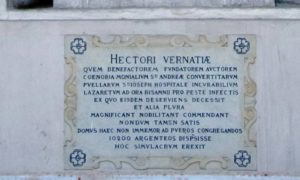 (Dal sito web https://www.europacristiana.com)
(Dal sito web https://www.europacristiana.com)
November 11, 2018
by Daniele Bolognini
On November 9, 2018, the diocesan phase of the cause of beatification of Ettore Vernazza in the Archdiocese of Genoa was concluded, whose nihil obstat by the Holy See had been granted on September 8, 2007. After more than five centuries, his figure is extraordinarily fascinating and is proposed as an example.
He was among the most distinguished disciples of St. Catherine Fieschi Adorno, and was among those who impressed their thoughts through the press, for the good fortune of a multitude of readers in the centuries to come. We have one of his descriptions from his daughter Battistina, a nun of the Canons Regular of the Lateran, who said that her father did “everything for God”. Ettore Vernazza was the first in Europe to create the so-called “hospitals of the incurables”.
He was born in Genoa between 1469 and 1470. His father Pietro was a notary, while his mother Battistina belonged to the illustrious Spinola family. His brother Bernardo acquired his profession from the father. Ettore, around the year 1496, married Bartolomea Ricca and from their happy union were born three daughters: the above-mentioned Battistina, who was baptized by Saint Catherine and remained in the cloister since the age of 13, and two other sisters, who also joined the convent. Battistina also said, about family life, that she was really happy, at home “they were in great peace together”. He was a member of the Brotherhood and Oratory of Divine Love, founded on December 26, 1497 on the inspiration of the disciples of Saint Catherine, with the “aim of transforming divine love into love for one’s neighbour”. In that same year Ettore founded the society “Mandiletto” to collect alms for the poor. In the Ligurian dialect, mandiletto is a handkerchief that served to cover the face of the donor when he went to the homes of the needy to help.
In the same context, the “Ridotto degli Incurabili” (The reduced of the Incurables) was founded, whose first statutes were approved on November 27, 1500 by the Senate of the Republic of Genoa. The “incurables” were syphilitics, the most pitiful among the sick, rejected by all because their bodies were covered with fetid and contagious blisters and abscesses.
Not even forty years old, he remained a widower and felt the will to become a religious, but he was “invited”, as a layman, to continue with the many pious works that he had already been into. After Genoa, he worked for founding “Hospitals for the Incurable” in Rome (1515) and in Naples (1517). In the municipality of Leone X, the ancient and dilapidated hospital of St. James was made available to him to help him grant tax privileges. In Naples, where he stayed for two years, Vernazza collaborated with the Catalan noblewoman Maria Lorenza Longo, founder of the Capuchin Poor Clares, recently declared venerable. Following these examples, similar works were created in Palermo, Florence, Bologna, Savona, Brescia, Padova and Venice. Back in his city, Vernazza also dedicated himself to assisting the “converts” and to educating orphans, for whom he opened the Conservatory of St. Joseph, which exists still today. He also established that funds should be allocated for some lawyers to follow the causes of the poor. He also took care of the shameful poor – who for reasons of rank could not ask for alms – and the slaves to be redeemed.
Untiring, this notary could have done much more. He was a capable administrator and a man of culture; he arranged the allocation of funds for a public office, in which lessons in law, medicine, grammar and rhetoric were held. For this reason, he is considered one of the founders of the University of Genoa. In 1512, he left testamentary dispositions for the creation of four medical Chairs.
Finally, he promoted the hospital unit for the plague victims of Santa Maria di Loreto – in the district of Foce, later transferred to Portoria – with the support of the doge Ottaviano Fregoso. He carried out his work of charity in contact with the doges, senators and popes, but refused to be portrayed as one of the benefactors of the hospital, which they wanted to do as a sign of gratitude. He decided to live in the Hospital of the Incurables so that he could always be close to “his” poor people. He died there during a plague epidemic, it was June 27, 1524, after having done a heroic service in favour of the sick. The Hospital of the Incurables was the heir of all his substance.
Ettore has left his daughter Battistina as the spiritual heir of his apostolate. A scholar of Sacred Scripture, author of important works of asceticism, she also dedicated herself to works of charity, becoming an advisor to eminent personages “for her virtue and her wisdom”. Battistina has already been declared Venerable.
consigliera di eminenti personaggi «per la sua virtù ed il suo senno». Battistina è già stata dichiarata Venerabile.
ETTORE VERNAZZA E LA “COMPAGNIA DEL DIVINO AMORE” in Cesare Ghilardi, I Camilliani a Genova 1594-1994, Edizioni Camilliane, Torino, 1995




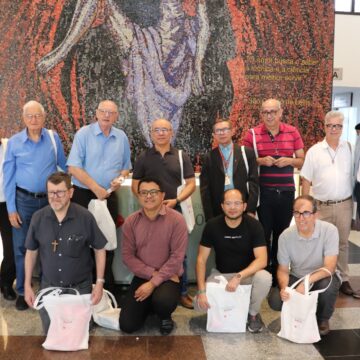
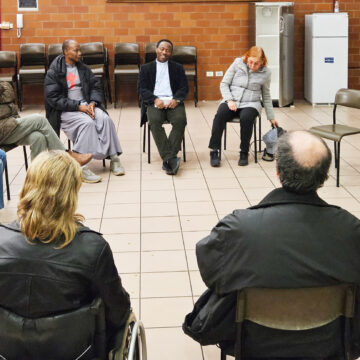




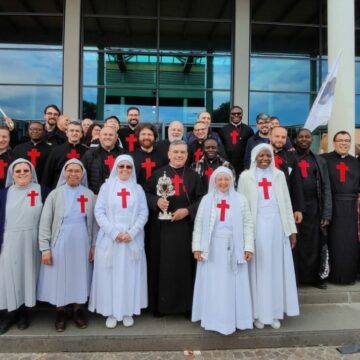
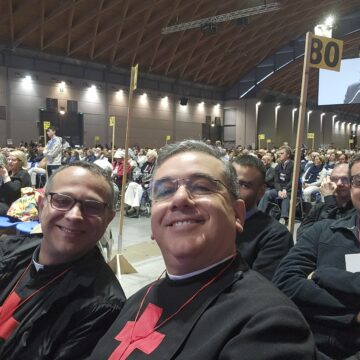

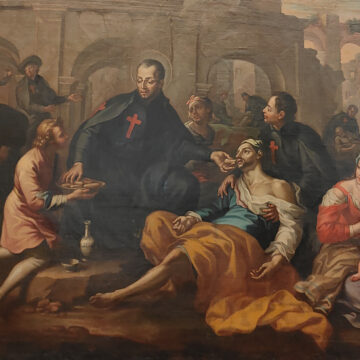


Camillians on Facebook
Camillians on Twitter
Camillians on Instagram